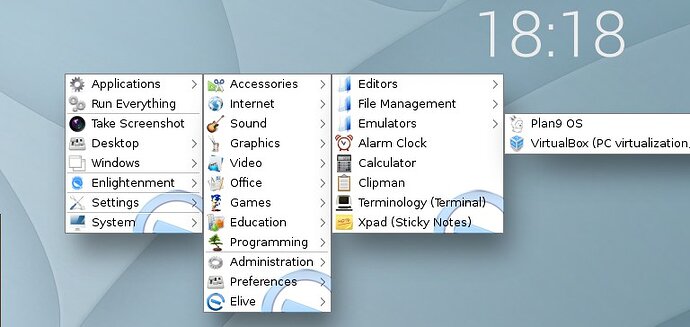As a few people may know, Plan9 is an amazing, uber-geek operating system that lacked recognition due to its too-far-on-its-time revolutionary concepts, allowing new ways of working.
Made in 1992, it had unique and uncommon features, a good amount of them were later introduced in Linux like the /proc filesystem, it is definitively a very worth operating system to study, play, and discover
Some unique features of Plan9
- runs on 32 MB of ram (for a real machine install, this howto is about using it directly inside your linux system)
- everything-is-a-file, even remote machines in the network
- there's no root, everything runs in user-space
- write an application and everybody can run it in their machines, no need to compile or share since its not network-aware, just run it like /net/Thanatermesis/bin/myapplication
- there's not exactly a graphical system, everything is text, this means that a menu can contain a structure like 'File | Edit | View' and you can modify it, if you write 'Cut' it is directly becomes a functional button, click to it to cut a text!
Elive includes an extremely easy way to use it without losing time creating virtual environments or messing with configurations, but even better:
- just launch the system in your desktop, like a normal application
- the system is interpreted, not emulated, this means that runs optimally fast
- no need to create partitions, or to boot in another system
- the system is shared, as real files in your system, you can access and edit the files directly
How to run it:
Elive:
Install the package by running this command from a terminal:
api plan9-vx32
Then it will appear directly in your menus:
The tool creates a directory in your home and copies on it the full system on it, you can see on it all the files which you can manipulate
~/.local/share/9vx-0.12/
The next time you launch it you will be surprised how fast the OS starts!
Other Debian-based systems:
Same as above, but installing the package by yourself from:
You should not have any dependencies problems since the debian control files made are pretty clean for that
Other Linux systems:
Use the ar x command to unpack the contents and move them to your / filesystem as root
That's it, enjoy!
Now, it's up to you investigate what you can do with it and see what fun things you discover!
![]()
![]()
![]()
